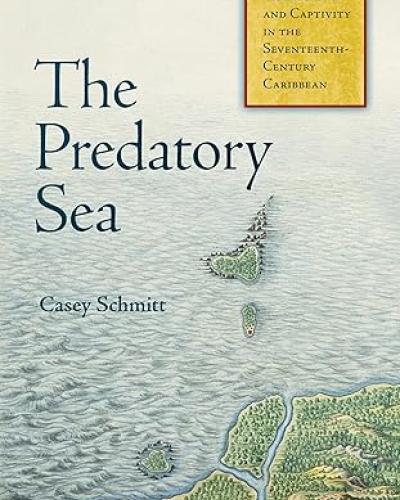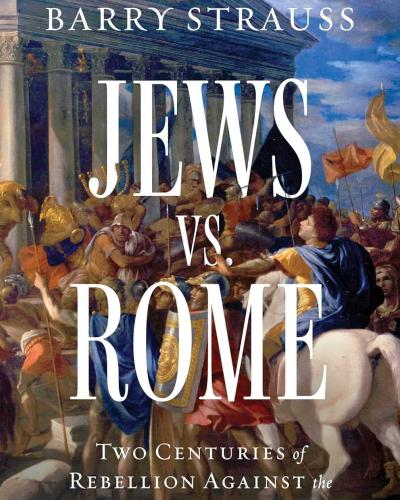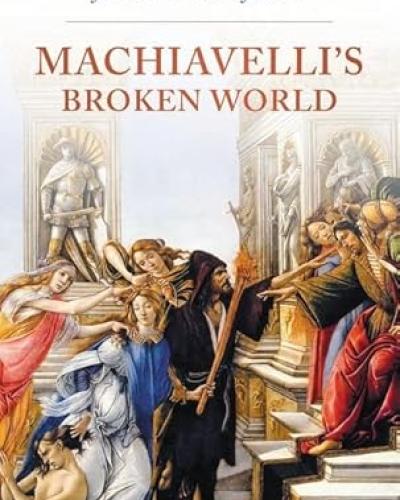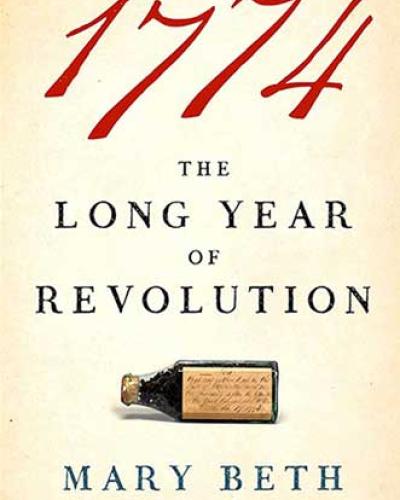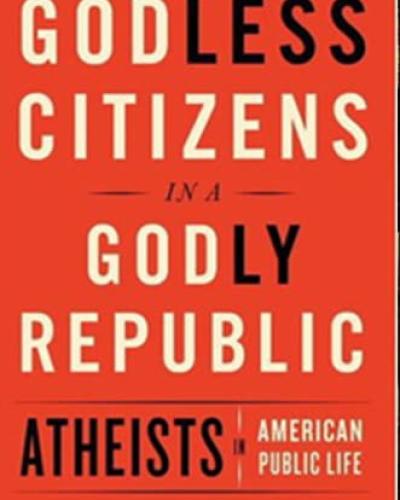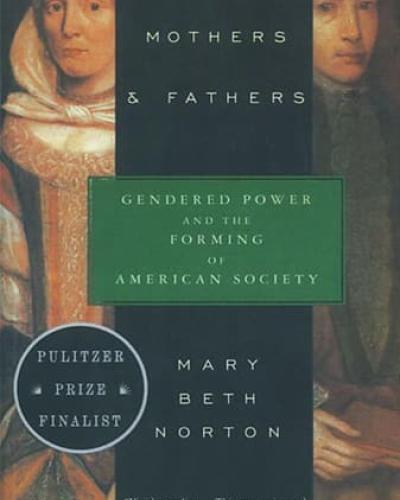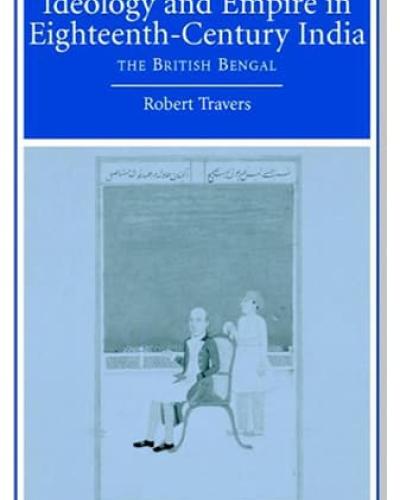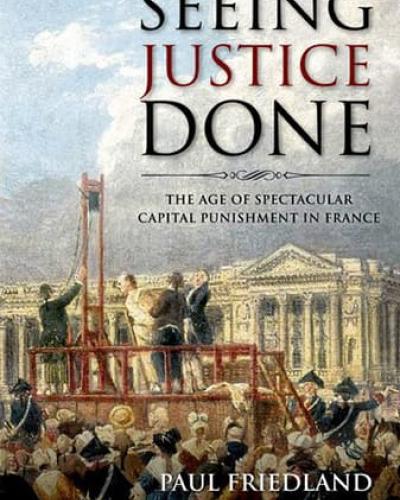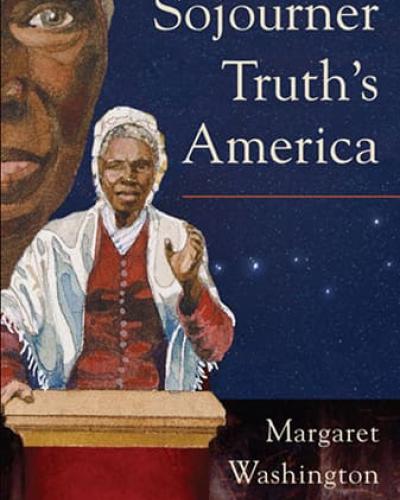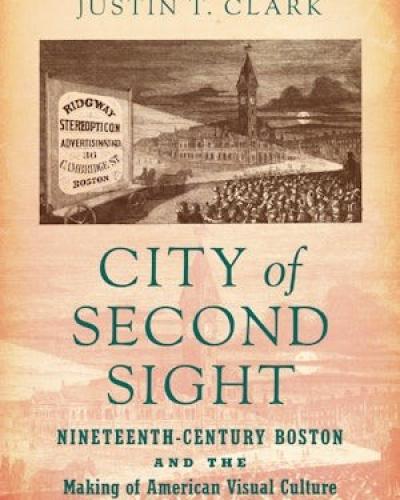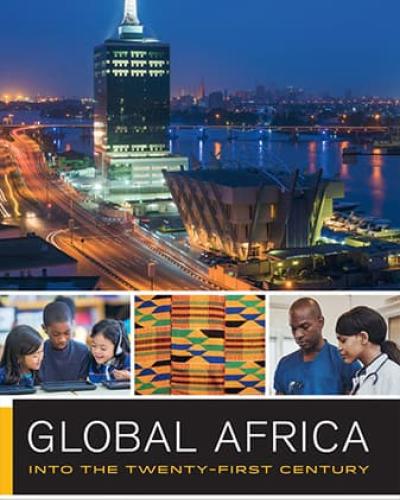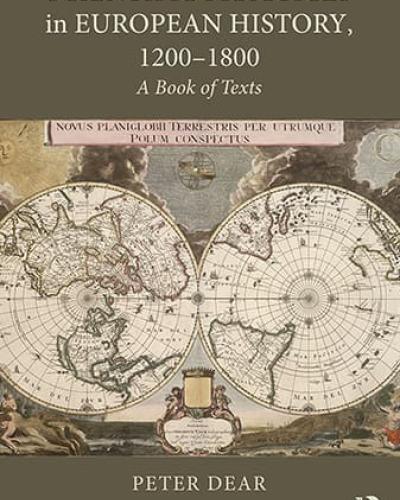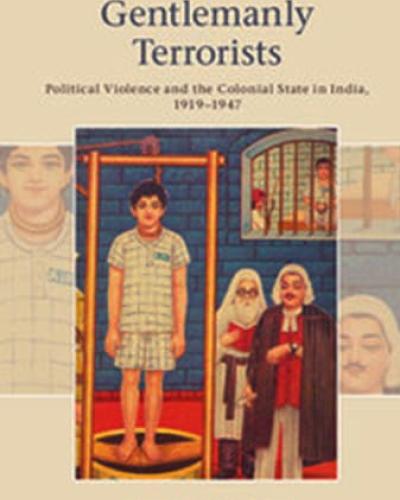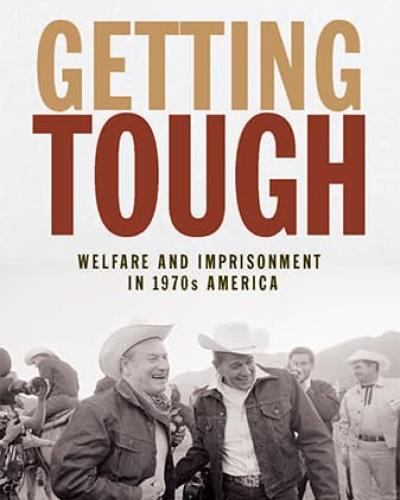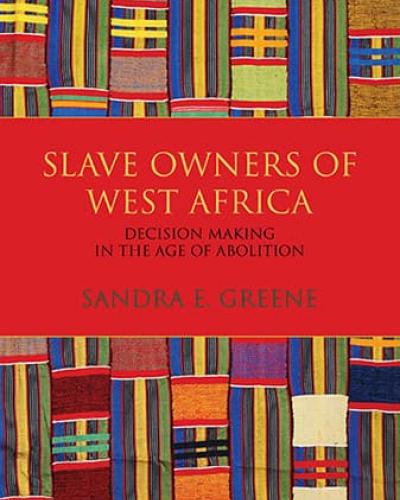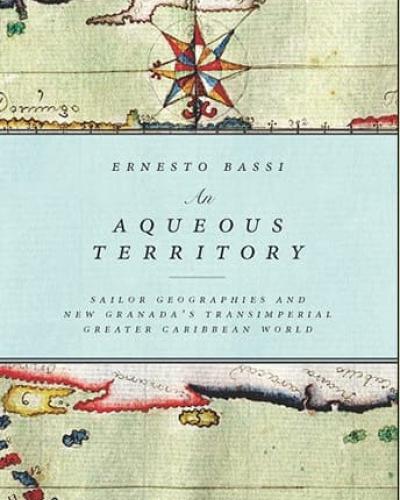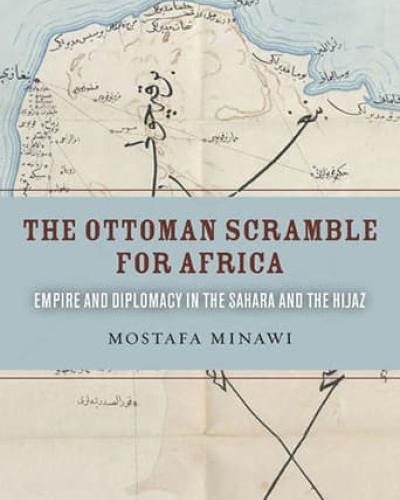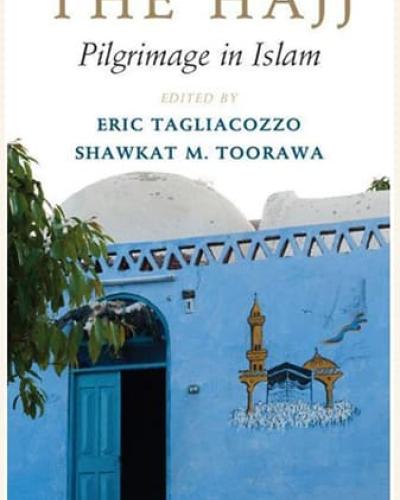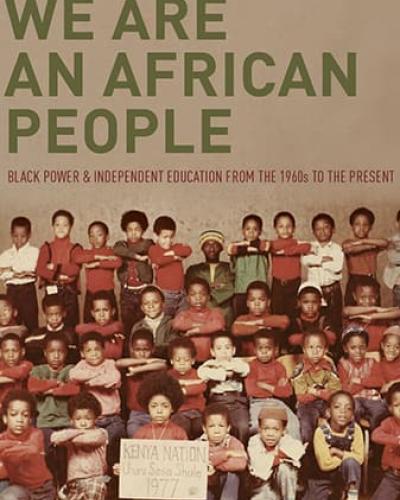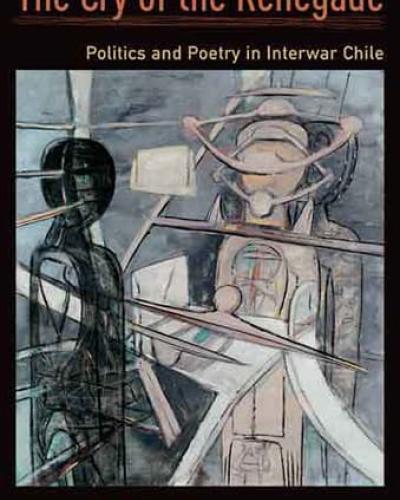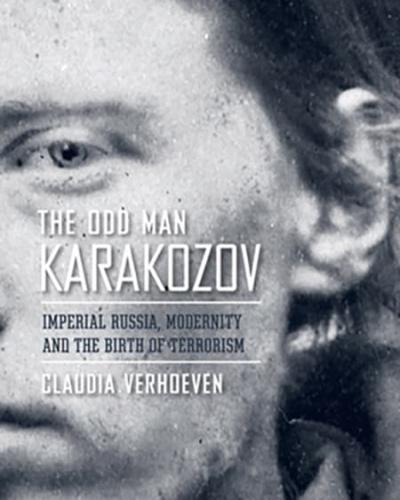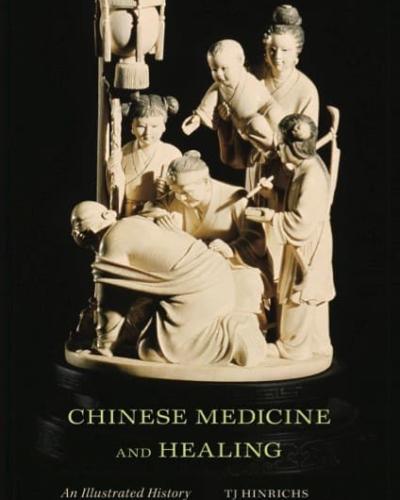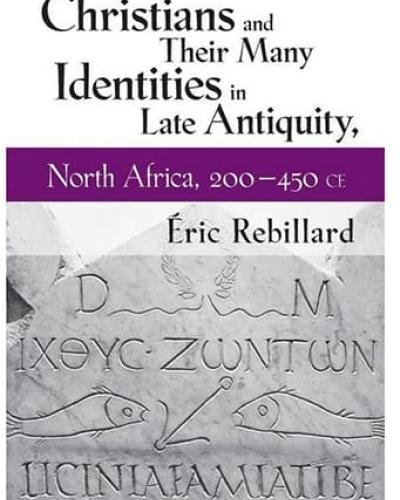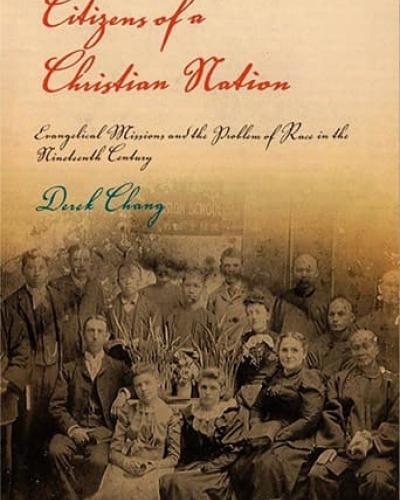Up from the Depths tells the interconnected stories of two of the most important writers in American history—the novelist and poet Herman Melville (1819–1891) and one of his earliest biographers, the literary critic and historian Lewis Mumford (1895–1990). Deftly cutting back and forth between the writers, Aaron Sachs reveals the surprising resonances between their lives, work, and troubled times—and their uncanny relevance in our own age of crisis.
The author of Moby-Dick was largely forgotten for several decades after his death, but Mumford helped spearhead Melville’s revival in the aftermath of World War I and the 1918–1919 flu pandemic, when American culture needed a forebear with a suitably dark vision. As Mumford’s career took off and he wrote books responding to the machine age, urban decay, world war, and environmental degradation, it was looking back to Melville’s confrontation with crises such as industrialization, slavery, and the Civil War that helped Mumford to see his own era clearly. Mumford remained obsessed with Melville, ultimately helping to canonize him as America’s greatest tragedian. But largely forgotten today is one of Mumford’s key insights—that Melville’s darkness was balanced by an inspiring determination to endure.
Amid today’s foreboding over global warming, racism, technology, pandemics, and other crises, Melville and Mumford remind us that we’ve been in this struggle for a long time. To rediscover these writers today is to rediscover how history can offer hope in dark times.
Japan Reborn: Race and Eugenics from Empire to Cold War
At the peak of imperial expansion in World War II, Japan touted itself as a multiracial paradise. The state, eugenicists, and media supported intermarriage and adoption as tools of empire, encouraging “blood mixing” to fuse diverse populations into one harmonious family. Yet after defeat in World War II, a chorus of Japanese policy makers, journalists, and activists railed against Japanese women who consorted with occupying American men and their mixed-race children. Why did Japan embrace “mixed blood” as an authoritarian empire yet turn to xenophobic racial nationalism as a postwar democracy?
Tracing changing views of the “mixed blood” child, Japan Reborn reveals how notions of racial mixture and purity reshaped Japanese identity. Kristin Roebuck unravels the politics of sex and reproduction in Japan from the invasion of Manchuria in the 1930s to the dawn of US-Japan alliance in the 1950s, uncovering eugenic ideas and policies that policed the boundaries of kinship and country. She shows how the trauma of defeat sparked an abhorrence of interracial sex and caused a profound devolution in the social status of “mixed” children and their Japanese mothers. She also unpacks how Japan’s postwar identity crisis put pressure on the United States to bring Japanese brides and “mixed blood” children into the Cold War American family. Shedding light on the sexual and racial tensions of empire, occupation, and the Cold War, this book offers new ways to understand the shifting terrain of Japanese nationalism and international relations.
The Predatory Sea: Human Trafficking and Captivity in the Seventeenth-Century Caribbean
A new interpretation of captivity, human trafficking, and colonization in the seventeenth-century Caribbean
A century before the height of the Atlantic slave trade, early modern racialized slavery emerged through practices of captive-taking and human trafficking in the sixteenth- and seventeenth-century Caribbean. The Predatory Sea offers the first full-length study of this deeply entangled history of captivity and colonialism.
Between 1570 and 1670, a multinational assortment of privately funded ship captains, sailors, merchants, and adventurers engaged in widespread practices of captive-taking and human trafficking. Raids against coastal communities and regional shipping in the Caribbean ensnared multitudes, including free and previously enslaved people of African and Indigenous descent, who found themselves trafficked into slavery away from their communities of belonging. Beginning in the 1570s, their captors established maritime bases on small, strategically located islands throughout the region. Those anchorages served as temporary settlements for northern European traffickers decades before their respective monarchs sanctioned official colonies. Colonization thus started with practices of captive-taking and human trafficking, which remained central to the development of the first English and French colonies in the Caribbean.
Through extensive research in Spanish, French, and English archives in Europe and the Caribbean, Casey Schmitt offers a fresh perspective on how captivity and maritime violence shaped early English, French, and Dutch settlement. Reading across imperial archives, she also reveals the experiences of those ensnared in this trade. Many captives escaped to Spanish population centers, where they testified to officials about what they witnessed in early English, French, and Dutch colonies. Those testimonies informed a series of Spanish attacks on foreign settlements in the Caribbean over the decades leading up to the 1650s. As Schmitt argues, captives were cause and consequence of inter-imperial competition and warfare during this violent century of Caribbean history. This captive economy, as explicated in The Predatory Sea, shaped English and French colonization, inter-imperial competition, and the lived experiences of captives and their captors.
Unfiltered Regard for China: French Perspectives from Mao to Xi
Unfiltered Regard for China is a collection of six unique narratives of French academics who, through decades of fieldwork, research, and engagement—some beginning as early as 1964 and continuing to the present—have explored China’s history, politics, and society. These distinct voices illuminate decades of transnational “scholar-state nexus” in the context of the rule of the Chinese Communist Party (CCP) in mainland China.
Spanning generations of French scholars, this book features luminaries such as sinologist Marianne Bastid-Bruguière and historian Michel Bonnin, alongside younger voices like sociologist Gilles Guiheux. These experts reveal the CCP’s unchanging nature, despite surface-level reforms, while exploring the party’s evolving control over society under leaders from Mao Zedong to Xi Jinping. Moving beyond traditional narratives focused on Beijing and Shanghai, this book delves into second- and third-tier cities across provinces like Fujian, Hebei, and Shandong, offering perspectives shaped by immersive research and deep ties with local communities. It captures the emotional, cultural, and intellectual connections of Sino-French engagements, providing readers nuanced perspectives on China’s social and political landscape through voices that have spent decades closely observing its evolution.
This work is essential for students, scholars, and general readers interested in History, Political Science, Government, International Relations, and Asian Studies.
Jews vs. Rome: Two Centuries of Rebellion Against the World's Mightiest Empire
A new history of two centuries of Jewish revolts against the Roman Empire, drawing on recent archeological discoveries and new scholarship by leading historian Barry Strauss.
Jews vs. Rome is a gripping account of one of the most momentous eras in human history: the two hundred years of ancient Israel’s battles against Rome that reshaped Judaism and gave rise to Christianity. Barry Strauss vividly captures the drama of this era, highlighting the courageous yet tragic uprisings, the geopolitical clash between the empires of Rome and Persia, and the internal conflicts among Jews.
Between 63 BCE and 136 CE, the Jewish people launched several revolts driven by deep-seated religious beliefs and resentment towards Roman rule. Judea, a province on Rome’s eastern fringe, became a focal point of tension and rebellion. Jews vs. Rome recounts the three major uprisings: the Great Revolt of 66–70 CE, which led to the destruction of Jerusalem and the Temple, culminating in the Siege of Masada, where defenders chose mass suicide over surrender; the Diaspora Revolt, ignited by heavy taxes across the Empire; and the Bar Kokhba Revolt. We meet pivotal figures such as Simon Bar Kokhba but also some of those lesser-known women of the era like Berenice, a Jewish princess who played a major role in the politics of the Great Revolt and was improbably the love of Titus—Rome’s future emperor and the man who destroyed Jerusalem and the Temple.
Today, echoes of those battles resonate as the Jewish nation faces new challenges and conflicts. Jews vs. Rome offers a captivating narrative that connects the past with the present, appealing to anyone interested in Rome, Jewish history, or the compelling true tales of resilience and resistance.
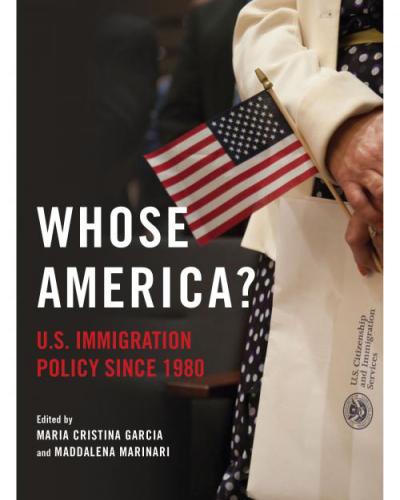
Whose America?: U.S. Immigration Policy since 1980
Whose America?: U.S. Immigration Policy since 1980
A centerpiece of contemporary politics, draconian immigration policies have been long in the making. Maria Cristina Garcia and Maddalena Marinari edit works that examine the post-1980 response of legislation and policy to issues like undocumented immigration, economic shifts, national security, and human rights. Contributors engage with a wide range of ideas, including the effect of the Illegal Immigration Reform and Immigrant Responsibility Act and other laws on the flow of migrants and forms of entry; the impact of neoliberalism and post-Cold War political realignment; the complexities of policing and border enforcement; and the experiences of immigrant groups in communities across the United States.
Up-to-date yet rooted in history, Whose America? provides a sophisticated account of recent immigration policy while mapping the ideological struggle to answer an essential question: which people have the right to make America their home or refuge?
Contributors: Leisy Abrego, Carl Bon Tempo, Julio Capó, Jr., Carly Goodman, Julia Rose Kraut, Monique Laney, Carl Lindskoog, Yael Schacher, and Elliott Young

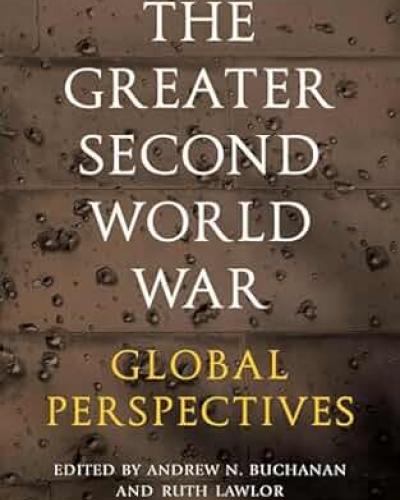
The Greater Second World War: Global Perspectives
The Greater Second World War: Global Perspectives
Ruth Lawlor, Andrew N. Buchanon
The Greater Second World War challenges the traditional temporal and geographic frameworks of World War II, expanding the timeline to include a series of regional conflicts and revolutions that began in 1931 and continued into the mid-1950s. These conflicts bookended a "central paroxysm" defined by the intervention of the United States into every theater of the war, rendering it genuinely global. The essays within this volume bring top-level accounts of US, European, and Axis strategic maneuvering into conversation with social histories of "bottom-up" agency in ways that destabilize conventional narratives.
Working with novel and overlapping scales of time and space and attuned to ongoing and lively debates about the place of the nation-state in global history after 1945, the scholars featured in The Greater Second World War seek to not only describe the war's beginnings in Asia and Africa―rather than in Europe―but also trace its ends to the shatter zones of the Soviet frontier, the struggles for sovereignty in contested spaces, and the long-reaches of US imperialism well into the late twentieth century. Together, their contributions reveal how the cascading imperial and economic crises of the mid-twentieth century triggered a series of discrete local and regional struggles that took on the character of a singular, unified "world war" after the entry of the United States into every theater and almost every corner of the world.
Contributors: Marco Maria Aterrano, Th. W. Bottelier, Pablo del Hierro, Alexandre Fortes, Kelly A. Hammond, Ashley Jackson, Naina Manjrekar, David Motadel, Tejasvi Nagaraja, Martin Thomas

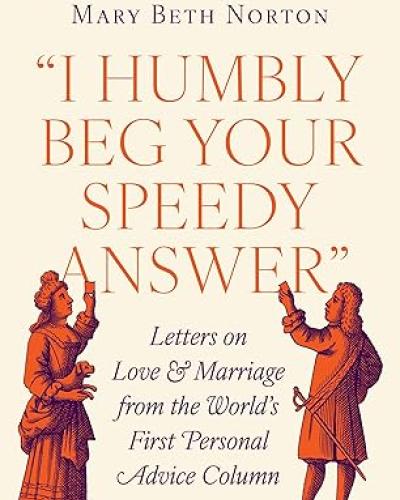
"I Humbly Beg Your Speedy Answer": Letters on Love and Marriage from the World’s First Personal Advice Column
"I Humbly Beg Your Speedy Answer": Letters on Love and Marriage from the World’s First Personal Advice Column
Mary Beth Norton
A fascinating collection of questions and answers—about courtship, marriage, love, and sex—from a seventeenth-century periodical.
The Athenian Mercury—a one-page, two-sided periodical published in 1690s London—included the world’s first personal advice column. Acclaimed historian and Pulitzer Prize–finalist Mary Beth Norton’s “I Humbly Beg Your Speedy Answer” is a remarkable collection of questions and answers drawn from this groundbreaking publication.
In these exchanges, anonymous readers look for help with their most intimate romantic problems—about courting, picking a spouse, getting married, securing or avoiding parental consent, engaging in premarital sex and extramarital affairs, and much more. Spouses ask how to handle contentious marriages and tense relationships with in-laws. Some correspondents seek ways to ease a conscience troubled by romantic and sexual misbehavior. The lonely wonder how to meet a potential partner—or how to spark a warmer relationship with someone they already have an eye on. And both men and women inquire about how to extract themselves from relationships turned sour. Many of these concerns will be familiar to readers of today’s advice columns. But others are delightfully strange and surprising, reflecting forgotten social and romantic customs and using charmingly unfamiliar language in which, for example, “kissing is a luscious diet,” a marriage might provide “much love and moderate conveniency,” and an “amorous disposition” can lead to trouble.
Delightful and entertaining, “I Humbly Beg Your Speedy Answer” provides a unique, intriguing, and revealing picture of what has—and hasn’t—changed over the past three centuries when it comes to love, sex, and relationships.

"I Humbly Beg Your Speedy Answer": Letters on Love and Marriage from the World’…
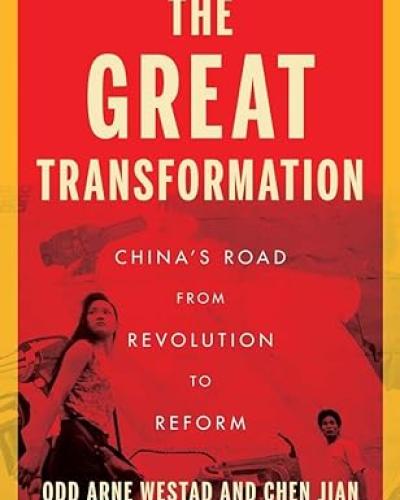
The Great Transformation: China’s Road from Revolution to Reform
The Great Transformation: China’s Road from Revolution to Reform
Chen Jian, Odd Arne Westad
The first thorough account of a formative and little understood chapter in Chinese history
Historians Odd Arne Westad and Chen Jian chronicle how an impoverished and terrorized China experienced radical political changes in the long 1970s and how ordinary people broke free from the beliefs that had shaped their lives during Mao’s Cultural Revolution. These political changes, and the unprecedented and sustained economic growth that followed, transformed China and the world.
From the corridors of CCP headquarters to collective enterprises in Guangdong and the arrival of the US table tennis team, Westad and Chen reconstruct a panorama of catastrophe and progress in China. In this rigorously told account they describe China’s gradual opening to the world—the interplay of power in an era of aged and ailing leadership, the people’s rebellion against the earlier government system, and the roles of unlikely characters: overseas Chinese capitalists, American engineers, Japanese professors, and German designers. It is the story of revolutionary change, in directions that almost no foreigners and very few Chinese could have imagined when it all started.

The Great Transformation: China’s Road from Revolution to Reform

Maghreb Noir: The Militant-Artists of North Africa and the Struggle for a Pan-African, Postcolonial Future
Maghreb Noir: The Militant-Artists of North Africa and the Struggle for a Pan-African, Postcolonial Future
Upon their independence, Moroccan, Algerian, and Tunisian governments turned to the Global South and offered military and financial aid to Black liberation struggles. Tangier and Algiers attracted Black American and Caribbean artists eager to escape American white supremacy; Tunis hosted African filmmakers for the Journées Cinématographiques de Carthage; and young freedom fighters from across the African continent established military training camps in Morocco. North Africa became a haven for militant-artists, and the region reshaped postcolonial cultural discourse through the 1960s and 1970s.
Maghreb Noir dives into the personal and political lives of these militant-artists, who collectively challenged the neo-colonialist structures and the authoritarianism of African states. Drawing on Arabic, Spanish, Portuguese, French, and English sources, as well as interviews with the artists themselves, Paraska Tolan-Szkilnik expands our understanding of Pan-Africanism geographically, linguistically, and temporally. This network of militant-artists departed from the racial solidarity extolled by many of their nationalist forefathers, instead following in the footsteps of their intellectual mentor, Frantz Fanon. They argued for the creation of a new ideology of continued revolution―one that was transnational, trans-racial, and in defiance of the emerging nation-states. Maghreb Noir establishes the importance of North Africa in nurturing these global connections―and uncovers a lost history of grassroots collaboration among militant-artists from across the globe.

Maghreb Noir: The Militant-Artists of North Africa and the Struggle for a Pan-A…
Zhou Enlai: A Life
Chen Jian
The definitive biography of Zhou Enlai, the first premier and preeminent diplomat of the People’s Republic of China, who protected his country against the excesses of his boss―Chairman Mao.
Zhou Enlai spent twenty-seven years as premier of the People’s Republic of China and ten as its foreign minister. He was the architect of the country’s administrative apparatus and its relationship to the world, as well as its legendary spymaster. Richard Nixon proclaimed him “the greatest statesman of our era.” Yet Zhou has always been overshadowed by Chairman Mao. Chen Jian brings Zhou into the light, offering a nuanced portrait of his complex life as a revolutionary, a master diplomat, and a man with his own vision and aspirations who did much to make China, as well as the larger world, what it is today.
Born to a declining mandarin family in 1898, Zhou received a classical education and as a teenager spent time in Japan. As a young man, driven by the desire for China’s development, Zhou embraced the communist revolution as a vehicle of China’s salvation. He helped Mao govern through a series of transformations, including the disastrous Great Leap Forward and Cultural Revolution. Yet, as Chen shows, Zhou was never a committed Maoist. His extraordinary political and bureaucratic skill, combined with his centrist approaches, enabled him to mitigate the enormous damage caused by Mao’s radicalism.
When Zhou died in 1976, the PRC that we know of was not yet visible on the horizon; he never saw glistening twenty-first-century Shanghai or the broader emergence of Chinese capitalism. But it was Zhou’s work that shaped the nation whose influence and power are today felt in every corner of the globe.
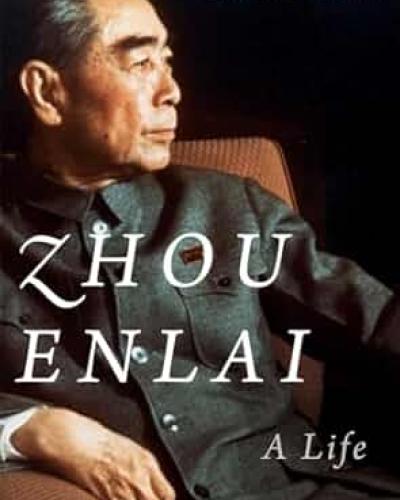
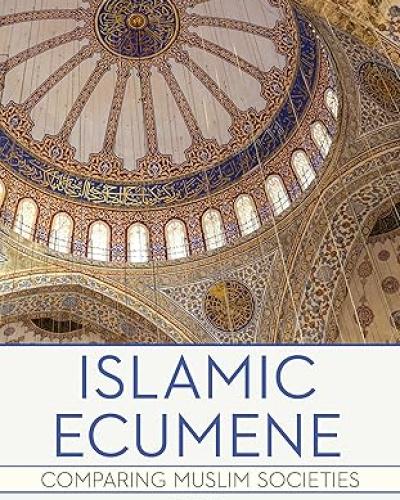
Islamic Ecumene: Comparing Muslim Societies
Islamic Ecumene: Comparing Muslim Societies
Edited by: Eric Tagliacozzo, David S. Powers
The essays in Islamic Ecumene address the ways in which Muslims from Morocco to Indonesia and from sub-Saharan Africa to the steppes of Uzbekistan are members of a broad cultural unit.
Although the Muslim inhabitants of these lands speak dozens of languages, represent numerous ethnic groups, and practice diverse forms of Islam, they are united by shared practices and worldviews shaped by religious identity. To highlight these commonalities, the co-editors invited a team of scholars from a wide range of disciplines to examine Muslim societies in comparative and interconnected ways. The result is a book that showcases ethics, education, architecture, the arts, modernization, political resistance, marriage, divorce, and death rituals.
Using the insights and methods of historians, anthropologists, literary critics, art historians, political scientists, and sociologists, Islamic Ecumene seeks to understand Islamic identity as a dynamic phenomenon that is reflected in the multivalent practices of the more than one billion people across the planet who identify as Muslims.

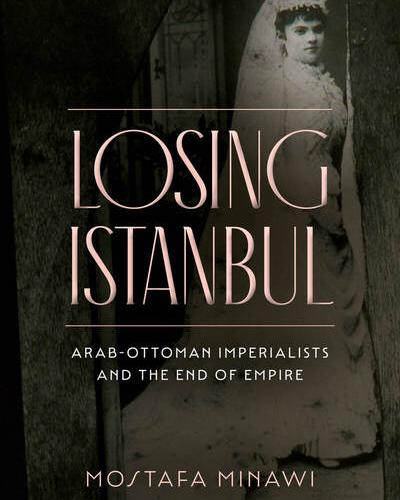
Losing Istanbul
Losing Istanbul
Losing Istanbul offers an intimate history of empire, following the rise and fall of a generation of Arab-Ottoman imperialists living in Istanbul. Mostafa Minawi shows how these men and women negotiated their loyalties and guarded their privileges through a microhistorical study of the changing social, political, and cultural currents between 1878 and the First World War. He narrates lives lived in these turbulent times—the joys and fears, triumphs and losses, pride and prejudices—while focusing on the complex dynamics of ethnicity and race in an increasingly Turco-centric imperial capital.
Drawing on archival records, newspaper articles, travelogues, personal letters, diaries, photos, and interviews, Minawi shows how the loyalties of these imperialists were questioned and their ethnic identification weaponized. As the once diverse empire comes to an end, they are forced to give up their home in the imperial capital. An alternative history of the last four decades of the Ottoman Empire, Losing Istanbul frames global pivotal events through the experiences of Arab-Ottoman imperial loyalists who called Istanbul home, on the eve of a vanishing imperial world order.

The Rise and Fall of Protestant Brooklyn
In The Rise and Fall of Protestant Brooklyn, Stuart M. Blumin and Glenn C. Altschuler tell the story of nineteenth-century Brooklyn's domination by upper- and middle-class Protestants with roots in Puritan New England. This lively history describes the unraveling of the control they wielded as more ethnically diverse groups moved into the "City of Churches" during the twentieth century.
Before it became a prime American example of urban ethnic diversity, Brooklyn was a lovely and salubrious "town across the river" from Manhattan, celebrated for its churches and upright suburban living. But challenges to this way of life issued from the sheer growth of the city, from new secular institutions—department stores, theaters, professional baseball—and from the licit and illicit attractions of Coney Island, all of which were at odds with post-Puritan piety and behavior.
Despite these developments, the Yankee-Protestant hegemony largely held until the massive influx of Southern and Eastern European immigrants in the twentieth century. As The Rise and Fall of Protestant Brooklyn demonstrates, in their churches, synagogues, and other communal institutions, and on their neighborhood streets, the new Brooklynites established the ethnic mosaic that laid the groundwork for the theory of cultural pluralism, giving it a central place within the American Creed.
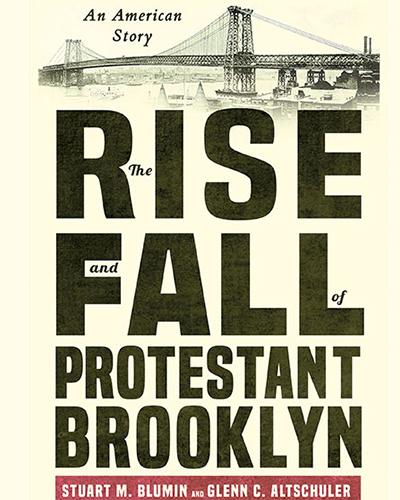
Machiavelli's Broken World
John M. Najemy
Machiavelli was painfully aware of living in a disastrous moment of Italy's history: foreign invasions, occupations and shattered states. He was harshly critical of Italy's princes (such as Francesco Sforza), its professional military class (especially Cesare Borgia), and the Church (Pope Julius II), and this is a study of his evaluation of their failures and of their underlying causes.
He believed that the root of Italy's political weakness was the excessive ambition of its elite classes, who, like their counterparts in ancient Rome, were prepared to overthrow governments that obstructed their ambition. Machiavelli formulates this phenomenon, first theoretically, then historically in the context of the Florentine Republic's descent into family-based factionalism, which culminated in the brittle Medici regime. The most damaging tyranny, according to Machiavelli, was the collective tyranny of wealthy elites ready to undermine law and government to preserve and augment their power and wealth.
State of Disaster
Natural disasters and the dire effects of climate change cause massive population displacements and lead to some of the most intractable political and humanitarian challenges seen today. Yet, as Maria Cristina Garcia observes in this critical history of U.S. policy on migration in the Global South, there is actually no such thing as a "climate refugee" under current U.S. law. Most initiatives intended to assist those who must migrate are flawed and ineffective from inception because they are derived from outmoded policies. In a world of climate change, U.S. refugee policy simply does not work.
Garcia focuses on Central America and the Caribbean, where natural disasters have repeatedly worsened poverty, inequality, and domestic and international political tensions. She explains that the creation of better U.S. policy for those escaping disasters is severely limited by the 1980 Refugee Act, which continues to be applied almost exclusively for reasons of persecution directly related to politics, race, religion, and identity. Garcia contends that the United States must transform its outdated migration policies to address today's realities. Climate change and natural disasters are here to stay, and much of the human devastation left in their wake is essentially a policy choice.
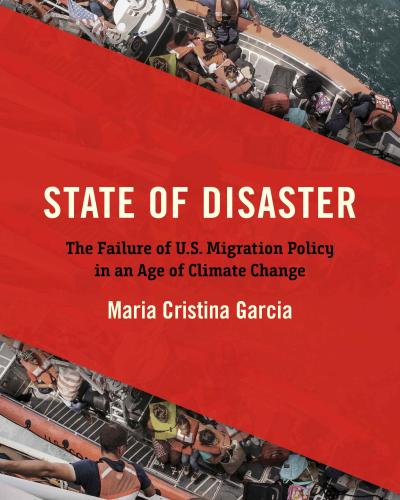
State of Disaster: The Failure of U.S. Migration Policy in an Age of Climate Ch…
Adventure Capitalism
Imagine a capitalist paradise. An island utopia governed solely by the rules of the market and inspired by the fictions of Ayn Rand and Robinson Crusoe. Sound far-fetched? It may not be. The past half century is littered with the remains of such experiments in what Raymond Craib calls “libertarian exit.” Often dismissed as little more than the dreams of crazy, rich Caucasians, exit strategies have been tried out from the southwest Pacific to the Caribbean, from the North Sea to the high seas, often with dire consequences for local inhabitants. Based on research in archives in the US, the UK, and Vanuatu, as well as in FBI files acquired through the Freedom of Information Act, Craib explores in careful detail the ideology and practice of libertarian exit and its place in the histories of contemporary capitalism, decolonization, empire, and oceans and islands. Adventure Capitalism is a global history that intersects with an array of figures: Fidel Castro and the Koch brothers, American segregationists and Melanesian socialists, Honolulu-based real estate speculators and British Special Branch spies, soldiers of fortune and English lords, Orange County engineers and Tongan navigators, CIA operatives and CBS news executives, and a new breed of techno-utopians and an old guard of Honduran coup leaders. This is not only a history of our time but, given the new iterations of privatized exit—seasteads, free private cities, and space colonization—it is also a history of our future.
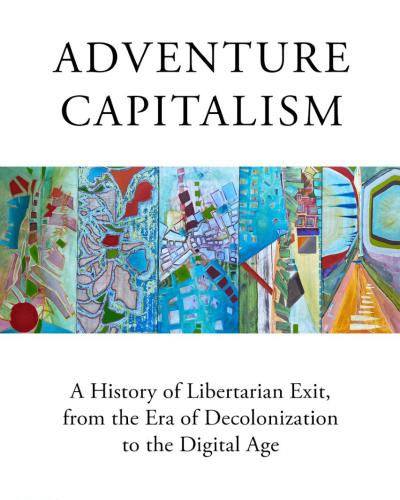
Adventure Capitalism: A History of Libertarian Exit, from the Era of Decoloniza…
In Asian Waters
In the centuries leading up to our own, the volume of traffic across Asian sea routes—an area stretching from East Africa and the Middle East to Japan—grew dramatically, eventually making them the busiest in the world. The result was a massive circulation of people, commodities, religion, culture, technology, and ideas. In this book, Eric Tagliacozzo chronicles how the seas and oceans of Asia have shaped the history of the largest continent for the past half millennium, leaving an indelible mark on the modern world in the process.
Paying special attention to migration, trade, the environment, and cities, In Asian Waters examines the long history of contact between China and East Africa, the spread of Hinduism and Buddhism across the Bay of Bengal, and the intertwined histories of Islam and Christianity in the Philippines. The book illustrates how India became central to the spice trade, how the Indian Ocean became a “British lake” between the seventeenth and nineteenth centuries, and how lighthouses and sea mapping played important roles in imperialism. The volume ends by asking what may happen if China comes to rule the waves of Asia, as Britain once did.
A novel account showing how Asian history can be seen as a whole when seen from the water, In Asian Waters presents a voyage into a past that is still alive in the present.

Up From the Depths
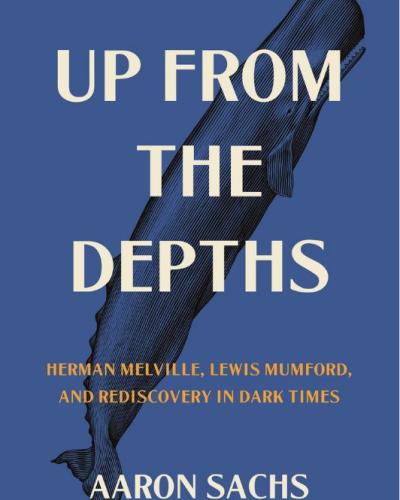

The War That Made the Roman Empire
The War That Made the Roman Empire
Following Caesar’s assassination and Mark Antony’s defeat of the conspirators who killed Caesar, two powerful men remained in Rome—Antony and Caesar’s chosen heir, young Octavian, the future Augustus. When Antony fell in love with the most powerful woman in the world, Egypt’s ruler Cleopatra, and thwarted Octavian’s ambition to rule the empire, another civil war broke out. In 31 BC one of the largest naval battles in the ancient world took place—more than 600 ships, almost 200,000 men, and one woman—the Battle of Actium. Octavian prevailed over Antony and Cleopatra, who subsequently killed themselves.
The Battle of Actium had great consequences for the empire. Had Antony and Cleopatra won, the empire’s capital might have moved from Rome to Alexandria, Cleopatra’s capital, and Latin might have become the empire’s second language after Greek, which was spoken throughout the eastern Mediterranean, including Egypt.

The Economic Weapon: The Rise of Sanctions as a Tool of Modern War
The Economic Weapon: The Rise of Sanctions as a Tool of Modern War
Economic sanctions dominate the landscape of world politics today. First developed in the early twentieth century as a way of exploiting the flows of globalization to defend liberal internationalism, their appeal is that they function as an alternative to war. This view, however, ignores the dark paradox at their core: designed to prevent war, economic sanctions are modeled on devastating techniques of warfare.
Tracing the use of economic sanctions from the blockades of World War I to the policing of colonial empires and the interwar confrontation with fascism, Nicholas Mulder uses extensive archival research in a political, economic, legal, and military history that reveals how a coercive wartime tool was adopted as an instrument of peacekeeping by the League of Nations. This timely study casts an overdue light on why sanctions are widely considered a form of war, and why their unintended consequences are so tremendous.
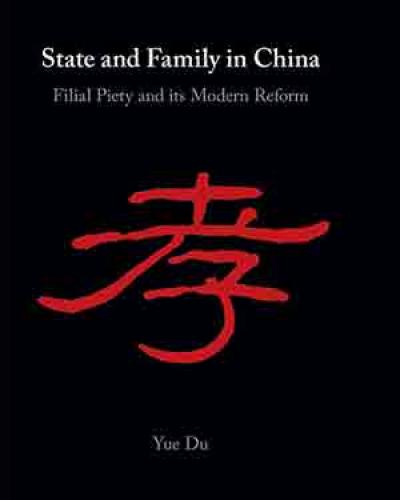
State and Family in China ~ Filial Piety and its Modern Reform
State and Family in China ~ Filial Piety and its Modern Reform
In Imperial China, the idea of filial piety not only shaped family relations but was also the official ideology by which Qing China was governed. In State and Family in China, Yue Du examines the relationship between politics and intergenerational family relations in China from the Qing period to 1949, focusing on changes in family law, parent-child relationships, and the changing nature of the Chinese state during this period. This book highlights how the Qing dynasty treated the state-sponsored parent-child hierarchy as the axis around which Chinese family and political power relations were constructed and maintained. It shows how following the fall of the Qing in 1911, reform of filial piety law in the Republic of China became the basis of state-directed family reform, playing a central role in China's transition from empire to nation-state.

State and Family in China ~ Filial Piety and its Modern Reform
1774-The Long Year of Revolution
Mary Beth Norton
A groundbreaking book–the first to look at the critical “long year” of 1774 and the revolutionary change that took place from December 1773 to mid-April 1775, from the Boston Tea Party and the First Continental Congress to the Battles of Lexington and Concord.
The Half Has Never Been Told
Americans tend to cast slavery as a pre-modern institution–the nation’s original sin, perhaps, but isolated in time and divorced from America’s later success. But to do so robs the millions who suffered in bondage of their full legacy. As historian Edward E. Baptist reveals in The Half Has Never Been Told, the expansion of slavery in the first eight decades after American independence drove the evolution and modernization of the United States. In the span of a single lifetime, the South grew from a narrow coastal strip of worn-out tobacco plantations to a continental cotton empire, and the United States grew into a modern, industrial, and capitalist economy.
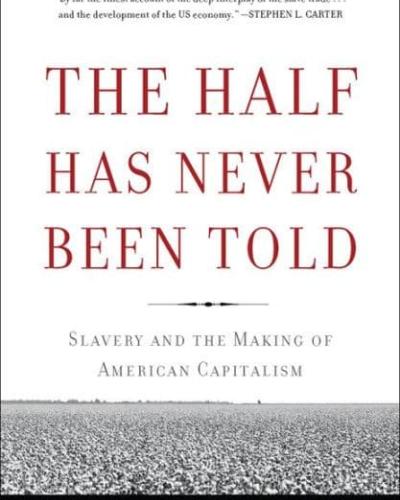
Free Enterprise
Throughout the twentieth century, “free enterprise” has been a contested keyword in American politics, and the cornerstone of a conservative philosophy that seeks to limit government involvement into economic matters. In this book, Lawrence B. Glickman shows how the idea first gained traction in American discourse and was championed by opponents of the New Deal. Those politicians, believing free enterprise to be a fundamental American value, held it up as an antidote to a liberalism that they maintained would lead toward totalitarian statism. Tracing the use of the concept of free enterprise, Glickman shows how it has both constrained and transformed political dialogue. He presents a fascinating look into the complex history, and marketing, of an idea that forms the linchpin of the contemporary opposition to government regulation, taxation, and programs such as Medicare. (Yale University Press, 2019)
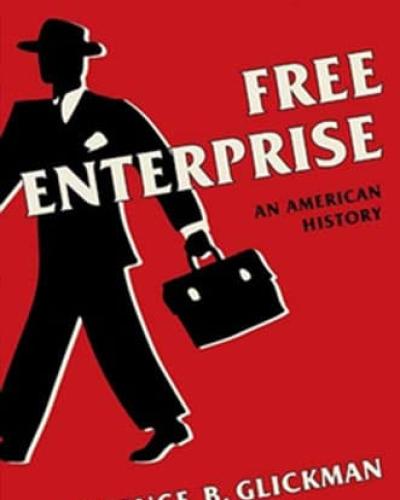
Ten Caesars ~ Roman Emperors from Augustus to Constantine
Barry Strauss’s Ten Caesars is the story of the Roman Empire from rise to reinvention, from Augustus, who founded the empire, to Constantine, who made it Christian and moved the capital east to Constantinople. Strauss tells the story of three and a half centuries of the Roman Empire through the lives of ten of the most important emperors. This book will be available on March 5, 2019.
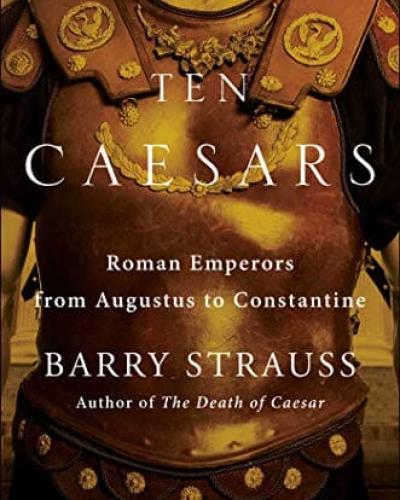
Godless Citizens in a Godly Republic: Atheists in American Public Life
God occupies our nation’s consciousness, even defining to many what it means to be American. Nonbelievers have often had second-class legal status and have had to fight for their rights as citizens. The authors, Isaac Kramnick and R. Lawrence Moore, demonstrate in their sharp and convincing work, that avowed atheists were derided since the founding of the nation.
Buying Power: A History of Consumer Activism in America
Uncovering previously unknown episodes and analyzing famous events from a fresh perspective, this book illuminates moments when consumer activism intersected with political and civil rights movements. Glickman also sheds new light on activists’ relationship with the consumer movement, which gave rise to lobbies like the National Consumers League and Consumers Union as well as ill-fated legislation to create a federal Consumer Protection Agency.
Founding Mothers and Fathers
In this pioneering study of the ways in which the first settlers defined the power, prerogatives, and responsibilities of the sexes, one of our most incisive historians opens a window onto the world of Colonial America. Drawing on a wealth of contemporary documents, Mary Beth Norton tells the story of the Pinion clan, whose two-generation record of theft, adultery, and infanticide may have made them our first dysfunctional family. She reopens the case of Mistress Ann Hibbens, whose church excommunicated her for arguing that God had told husbands to listen to their wives. And here is the enigma of Thomas, or Thomasine Hall, who lived comfortably as both a man and a woman in 17th century Virginia. Wonderfully erudite and vastly readable, Founding Mothers & Fathers reveals both the philosophical assumptions and intimate domestic arrangements of our colonial ancestors in all their rigor, strangeness, and unruly passion.
Haskalah, The Romantic Movement in Judaism
Based on imaginative and historically grounded readings of primary sources, Haskalah, The Romantic Movement in Judaism, presents a compelling case for rethinking the relationship between the Haskalah and the experience of political and social emancipation. Most importantly, it challenges the prevailing view that the Haskalah provided the philosophical mainspring for Jewish liberalism.
In this ambitious interpretation, nineteenth-century Eastern European intellectuals emerge as the authors of a Jewish Romantic revolution. Fueled by contradictory longings both for community and for personal freedom, the poets and scholars associated with the Haskalah questioned the moral costs of civic equality and the achievement of middle-class status. In the nineteenth century, their conservative approach to culture as the cure for the spiritual ills of the modern individual provided a powerful argument for the development of Jewish nationalism. Today, their ideas are equally resonant in contemporary debates about the ramifications of secularization for the future of Judaism.
Ideology and Empire in Eighteenth Century India
My book, Ideology and Empire in Eighteenth Century India, examined the political thought of the first generation of British empire-builders in India. It showed how British officials of the English East India Company tried to legitimize their conquests by appropriating forms and styles of rule from the Mughal empire, the Muslim empire which governed large parts of India before the era of British expansion.
Seeing Justice Done
Partly a history of penal theory, partly an anthropologically-inspired study of the penal ritual, Seeing Justice Done traces the historical roots of modern capital punishment, and sheds light on the fundamental "disconnect" between the theory and practice of punishment which endures to this day, not only in France but in the Western penal tradition more generally.
Sojourner Truth's America
This fascinating biography tells the story of nineteenth-century America through the life of one of its most charismatic and influential characters: Sojourner Truth. In an in-depth account of this amazing activist, the author unravels Sojourner Truth's world within the broader panorama of African American slavery and the nation's most significant reform era. (University of Illinois Press, 2009)
City of Second Sight: Nineteenth-Century Boston and the Making of American Visual Culture
"Over the course of the nineteenth century, the city of Boston evolved from a dilapidated, haphazardly planned, and architecturally stagnant provincial town, into a booming, visually impressive metropolis. Unexpectedly, the effort to impose moral and social order on the "Athens of America" inspired class-conscious spectators to look beyond the cityscape, reimagining nature, divinity, and the afterlife. A pioneering experiment in urban re-development, argues City of Sight, helped birth the remarkable cultural movements of Transcendentalism and Spiritualism."
Global Africa: Into the Twenty-First Century
Professor Judi Byfield co-edited a new volume of essays with Dorothy Hodgson: Global Africa: Into the Twenty-First Century.
Published by University of California Press, this volume documents the significant global connections, circulations and contributions that African people, ideas, and goods have made throughout the world-from the United States and South Asia to Latin America, Europe, and elsewhere.
Scientific Practices in European History, 1200-1800
Peter Dear's Scientific Practices in European History, 1200-1800: A Book of Texts presents and situates a collection of extracts from both widely know texts, by such figures as Copernicus, Newton, and Lavoisier, and lesser known but significant items, all chosen to...highlight the emerging technical preoccupations of...the early modern period.The selection of extracts highlights the emerging technical preoccupations of this period, while the accompanying introductions and annotations make these occasionally complex works accessible to students and non-specialists.
The Refugee Challenge in Post-Cold War America
Maria Cristina Garcia has published The Refugee Challenge in Post-Cold War America (Oxford University Press). Alan M. Kraut, past president of the Organization of American Historians, states that “This volume stands alone as the best history of U.S. refugee policy in post-Cold War America. Garcia chronicles the struggles of Russian refuseniks, Chinese dissidents, Rwandans fleeing genocide, as well as Haitian and Cuban boat people among those seeking sanctuary from persecution. Her meticulous research and incisive analysis illuminates the confusions and inadequacies of United States refugee policy under Republican and Democratic presidents alike.” Carl Bon Tempos, author of Americans at the Gate, states that “This book deftly explains how domestic politics, economic circumstances, and national security concerns have shaped what the United States has done –and not done- in the face of multiple refugee crises in the two decades after the end of the Cold War’. He describes her book as “masterful and elegant”.
Gentlemanly Terrorists: Political Violence and the Colonial State in India, 1919–1947
Durba Ghosh's new book, Gentlemanly Terrorists, focuses on an underground radical political movement in early and mid-twentieth century India and the ways in which political violence against the British colonial state became an important, but historically underemphasized, form of protest. While Gandhi's nonviolent protest movements are often seen to be the hallmark of anticolonial protest, the book follows how the colonial state invested in security and emergency legislation to contain what they felt was an active terrorist threat.
Getting Tough: Welfare and Imprisonment in 1970s America
In 1970s America, politicians began "getting tough" on drugs, crime, and welfare. These campaigns helped expand the nation's penal system, discredit welfare programs, and cast blame for the era's social upheaval on racialized deviants that the state was not accountable to serve or represent. Getting Tough sheds light on how this unprecedented growth of the penal system and the evisceration of the nation's welfare programs developed hand in hand. Julilly Kohler-Hausmann shows that these historical events were animated by struggles over how to interpret and respond to the inequality and disorder that crested during this period.
Slave Owners of West Africa: Decision Making in the Age of Abolition
In this groundbreaking book, Sandra E. Greene explores the lives of three prominent West African slave owners during the age of abolition. These first-published biographies reveal personal and political accomplishments and concerns, economic interests, religious beliefs, and responses to colonial rule in an attempt to understand why the subjects reacted to the demise of slavery as they did. Greene emphasizes the notion that the decisions made by these individuals were deeply influenced by their personalities, desires to protect their economic and social status, and their insecurities and sympathies for wives, friends, and other associates. Knowing why these individuals and so many others in West Africa made the decisions they did, Greene contends, is critical to understanding how and why the institution of indigenous slavery continues to influence social relations in West Africa to this day.
For an interview with Professor Greene about her book, listen to this informative Podcast.
An Aqueous Territory
An Aqueous Territory traces the configuration of a geographic space, the transimperial Greater Caribbean between 1760 and 1860. Focusing on the Caribbean coast of New Granada (present-day Colombia), An Aqueous Territory shows that the region's residents did not live their lives bounded by geopolitical borders.
Bones around My Neck
Prince Prisdang Chumsai (1852–1935) served as Siam's first diplomat to Europe during the most dramatic moment of Siam’s political history, when its independence was threatened by European imperialism. Despite serving with patriotic zeal, he suffered irreparable social and political ruin based on rumors about fiscal corruption, sexual immorality, and political treason. Bones around My Neck pursues the truth behind these rumors, which chased Prisdang out of Siam. The book recounts the personal and political adventures of an unwitting provocateur who caused a commotion in every country he inhabited.
The Ottoman Scramble for Africa: Empire and Diplomacy in the Sahara and the Hijaz
The Ottoman Scramble for Africa: Empire and Diplomacy in the Sahara and the Hijaz focuses on the empire’s efforts to reinvent itself on the international stage through the use of international law, interimperial diplomacy, and interpersonal relations with local chiefs, Sufi order leaders, kings, and sultans in Europe, the Sahara, and the Red Sea Basin. This work gives a new perspective on the study of imperialism by focusing on the inter- and interaimperial relations in the Ottoman context, south-south dimension of colonialism in Africa and the Middle East, and the shift from “old” to “new” imperial models of rule along the empire’s frontiers-cum-borderlands at the turn of the 20th century.
The Hajj Pilgrimage in Islam
The Hajj is the single largest agglomeration of human beings on the planet; every year, some three million Muslims now head from their homes to Mecca and Medina to pray in the great mosques of the Arabian desert. This book chronicles their story from a global vantage, looking at geographies, institutions, and aspirations across the Muslim world as these all relate to the holy pilgrimage.
We Are an African People
- An intellectual history of subaltern education, a critical analysis of the fate of Black Power ideologies in the post-segregation era, and a portrait of African-American self-activity at the neighborhood level.
- Puts forth a groundbreaking explanation of Black Power's preoccupation with forging a new people. Spans the last four decades of the 20th century with a focus on the 1970s.
The Cry of the Renegade: Politics and Poetry in Interwar Chile
On October 1, 1920, the city of Santiago, Chile, came to a halt as tens of thousands stopped work and their daily activities to join the funeral procession of José Domingo Gómez Rojas, a 24-year-old university student and acclaimed poet.
The Odd Man Karakozov Imperial Russia, Modernity, and the Birth of Terrorism
Through a microhistorical investigation of the April 4, 1866, attempted assassination of Tsar Alexander II, The Odd Man Karakozov shows terrorism as a phenomenon inextricably linked to the foundations of the modern world: capitalism, enlightened law and scientific reason, ideology, technology, new media, and above all, people's participation in politics and in the making of history.
Africa and World War II
This volume considers the military, economic, and political significance of Africa during World War II. The essays feature new research and innovative approaches to the historiography of Africa and bring to the fore issues of race, gender, and labor during the war, topics that have not yet received much critical attention.
The Bare-Sarked Warrior: A Brief Cultural History of Battlefield Exposure
On the shores of medieval North America, two civilizations — Norse and Native — clash. The descendants of the Vikings who had terrorized Europe break and run, quaking in the face of the unknown. Then a lone woman steps in, acting in a most unpredictable way to turn the tide. She is Freydís Eiríksdóttir, the first in a series of bare-sarked warriors whom this book explores. In their darkest hours, as societies teeter on the edge, these paradoxical saviors emerge to perform an alchemical swap: they substitute domesticated, gendered trouble for an unspeakable alien menace. Tracing their topos over a millennium or two, four continents, and a dozen or so languages, this book is about these women’s struggles, their triumphs, and the prices they pay.
Arcadian America
Perhaps America's best environmental idea was not the national park but the garden cemetery, a use of space that quickly gained popularity in the mid-nineteenth century. Such spaces of repose brought key elements of the countryside into rapidly expanding cities, making nature accessible to all and serving to remind visitors of the natural cycles of life. In this unique interdisciplinary blend of historical narrative, cultural criticism, and poignant memoir, Aaron Sachs argues that American cemeteries embody a forgotten landscape tradition that has much to teach us in our current moment of environmental crisis.

A Plague of Informers Conspiracy and Political Trust in William III's England
Stories of plots, sham plots, and the citizen-informers who discovered them are at the center of this compelling study of the turbulent decade following the Revolution of 1688. By encouraging informers, imposing loyalty oaths, suspending habeas corpus, and delaying the long-promised reform of treason trial procedure, the Williamite regime protected itself from enemies and cemented its bonds with supporters, but also put its own credibility at risk.
Chinese Medicine and Healing
This volume, with eight chronologically-arranged chapters and two on globalization, follows historical developments in a wide range of health interventions, including propitiation of disease-inflicting spirits, divination, vitality-cultivating disciplines, herbal remedies, and acupuncture. Inserted vignettes bring to life such diverse arenas of health care as childbirth in the Tang period, Yuan state-established medical schools, and the search for sexual potency in the People’s Republic.
Christians and Their Many Identities in Late Antiquity, North Africa, 200–450 CE
Christians and Their Many Identities in Late Antiquity, North Africa, 200–450 CE explores how Christians in North Africa between the age of Tertullian and the age of Augustine were selective in identifying as Christian, giving salience to their religious identity only intermittently. By shifting the focus from groups to individuals, Rebillard more broadly questions the existence of bounded, stable, and homogeneous groups based on Christianness.
West African Narratives of Slavery: Texts from Late Nineteenth-and Early Twentieth-Century Ghana
Slavery in Africa existed for hundreds of years before it was abolished in the late nineteenth century. Yet, we know little about how enslaved individuals, especially those who never left Africa talked about their experiences. This unprecedented study affords unique insights into how ordinary West African understood and talked about their lives during a time of change and upheaval.
Citizens of A Christian Nation
Citizens of a Christian Nation brings together for the first time African American and Chinese American religious histories through a multitiered local, regional, national, and even transnational analysis of race, nationalism, and evangelical thought and practice.
The Edge of the Woods: Iroquoia, 1534-1701
In The Edge of the Woods: Iroquoia, 1534-1701, Jon Parmenter argues that the extensive spatial mobility engaged in by Haudenosaunee people after their first contact with Europeans represented a geographical expression of Haudenosaunee social, political, and economic priorities. Parmenter drew on archival and published documents in several languages, archaeological data, published Haudenosaunee oral traditions, and GIS technology to reconstruct the Haudenosaunee settlement landscape and the paths of human mobility that built and sustained it.


